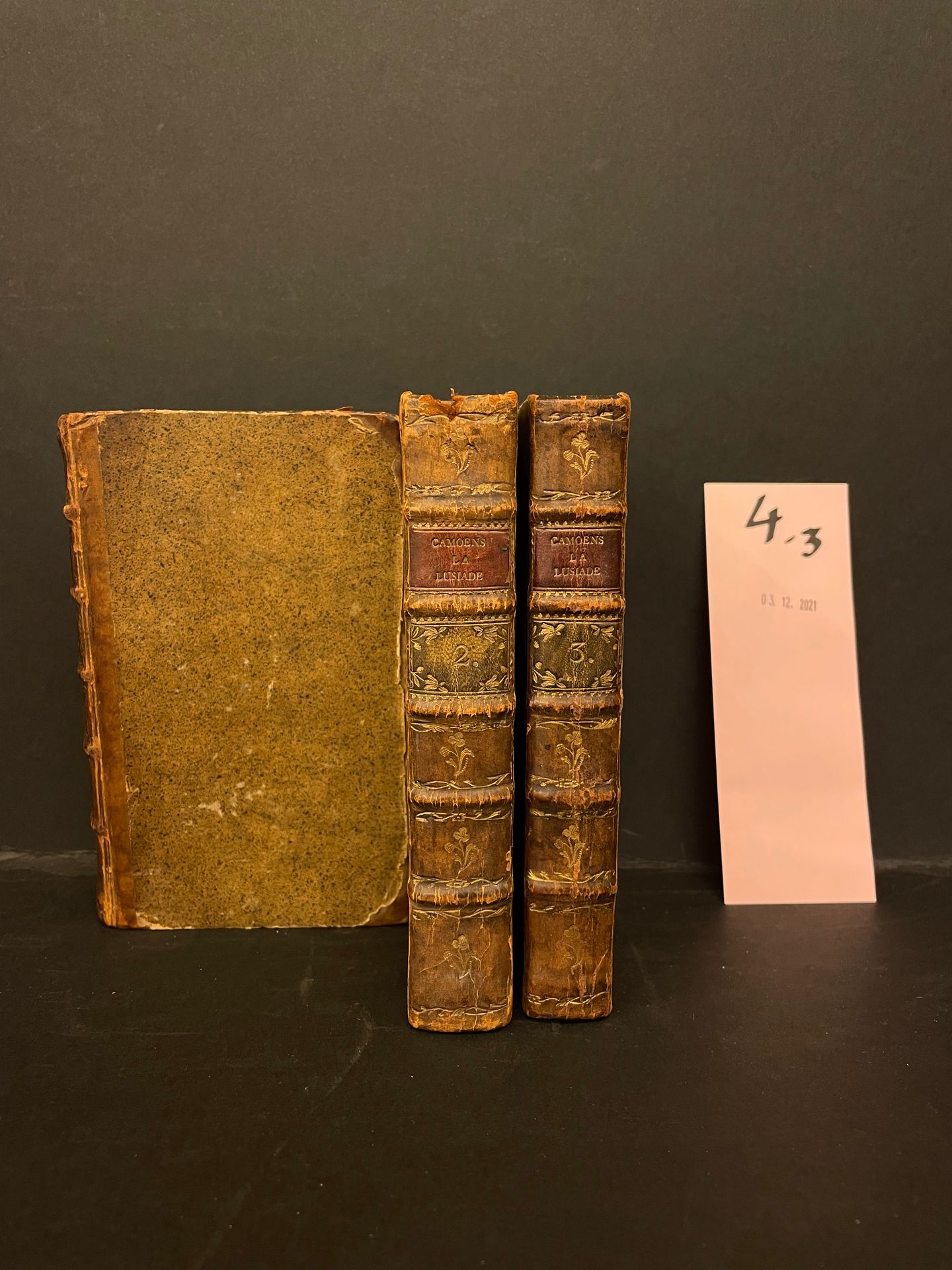Description
CAMÕES (Luis de). The Lusiad of Camoens, on the discovery of the East Indies. Translated from the Portuguese, by M. Duperron de Castera. Amsterdam, François l'Honorén 1785, 3 vols. in-12, [4]-LXIX-[3]-31[9]-1 bl. p., [4]-414-[1]-1 bl. p., and [4]-334-[1]-1 bl. p., 11 figures h.t., including the frontispiece, contemporary brown half calf, spine with decorated nerves (some paper missing at the edges, some wear). A good copy. The Lusiads (Os Lusíadas in the original Portuguese) is an epic poem by Luís de Camões, probably completed in 1556 but published in 1572, three years after his return from the Indies. Like the Iliad or the Odyssey for Ancient Greece or the Aeneid for Rome, The Lusiads is a work intended to recount and glorify the birth and destiny of the Portuguese nation and Empire. This poem is considered the most important work of Portuguese literary heritage, both for its literary qualities and for the patriotism it spreads. It ranks first on the List of 50 Essential Works of Portuguese Literature compiled in 2016 by the prestigious Diário de Notícias. Louis-Adrien Duperron de Castera (Paris, 1705 - Warsaw, 1752) was a French translator and playwright.
4
CAMÕES (Luis de). The Lusiad of Camoens, on the discovery of the East Indies. Translated from the Portuguese, by M. Duperron de Castera. Amsterdam, François l'Honorén 1785, 3 vols. in-12, [4]-LXIX-[3]-31[9]-1 bl. p., [4]-414-[1]-1 bl. p., and [4]-334-[1]-1 bl. p., 11 figures h.t., including the frontispiece, contemporary brown half calf, spine with decorated nerves (some paper missing at the edges, some wear). A good copy. The Lusiads (Os Lusíadas in the original Portuguese) is an epic poem by Luís de Camões, probably completed in 1556 but published in 1572, three years after his return from the Indies. Like the Iliad or the Odyssey for Ancient Greece or the Aeneid for Rome, The Lusiads is a work intended to recount and glorify the birth and destiny of the Portuguese nation and Empire. This poem is considered the most important work of Portuguese literary heritage, both for its literary qualities and for the patriotism it spreads. It ranks first on the List of 50 Essential Works of Portuguese Literature compiled in 2016 by the prestigious Diário de Notícias. Louis-Adrien Duperron de Castera (Paris, 1705 - Warsaw, 1752) was a French translator and playwright.
